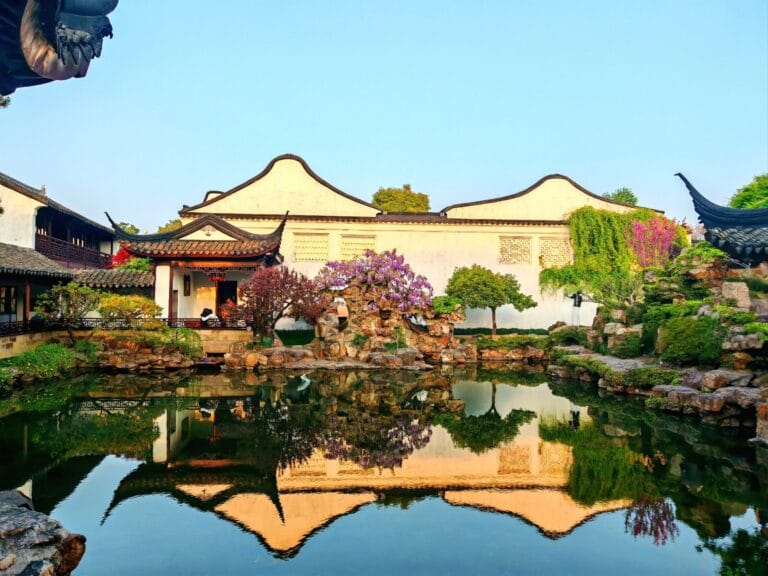Chinese New Year and Lunar Calendar: The Complete Travel Guide

Table of Contents
Chinese New Year, or the Spring Festival, is the most important holiday in China. It marks the beginning of a new year on the lunar calendar, celebrated with vibrant traditions, festivals, and family gatherings. For travelers, understanding Chinese New Year and the lunar calendar is key to experiencing China’s rich cultural heritage and planning a trip around this festive time.
In this article, we will explore the significance of Chinese New Year, the lunar calendar, and how travelers can make the most of their visit during this exciting period. We will also provide insights into the customs, history, and modern-day celebrations that make this time of year so special.
Understanding the Chinese Lunar Calendar
The Chinese lunar calendar is one of humanity’s most enduring timekeeping systems. For over 4,000 years, it has guided Chinese culture through seasons, festivals, and important life events. Today, it continues to influence modern Chinese society in profound ways.
How the Lunar Calendar Works
Unlike the Western calendar, the Chinese lunar calendar tracks both moon phases and solar positions. Each month begins with the new moon, creating a natural rhythm. The calendar adds an extra month every few years to maintain seasonal alignment. This unique system ensures festivals stay in their traditional seasons.
The Solar Terms
The calendar divides the year into 24 solar terms. Each term marks specific seasonal changes and weather patterns. These terms once guided farming activities. Now, they influence festival timing and traditional customs. For travelers, understanding solar terms helps explain seasonal celebrations and cultural practices.

Chinese New Year: The Spring Festival
Chinese New Year marks the lunar calendar’s most significant moment. It transforms cities and villages across China into festivals of color and light. Modern celebrations blend ancient traditions with contemporary life.
Pre-Festival Preparations
The preparation period starts about three weeks before the new year. Families clean their homes thoroughly to sweep away bad luck. Markets fill with festive goods, from red lanterns to spring couplets. People shop for new clothes, particularly in red, the color of good fortune.
New Year’s Eve Traditions
The reunion dinner on New Year’s Eve stands as the festival’s most important meal. Families gather to share dishes chosen for their symbolic meanings. Northern families make dumplings together, while southern regions prefer glutinous rice cakes. The evening culminates in fireworks at midnight.
First Week Celebrations
Each day of the first week carries special significance. The first day focuses on family visits and temple prayers. The second day welcomes married daughters back to their parents’ homes. Communities organize dragon dances and temple fairs throughout the week.

The Chinese Zodiac System
The zodiac cycle spans twelve years, each represented by an animal. These animals carry deep cultural significance, influencing everything from personal relationships to business decisions.
Understanding Your Zodiac Sign
Your birth year determines your zodiac animal. Each animal brings unique characteristics and fortune predictions. The zodiac influences festival decorations and celebrations each year. Understanding your sign adds depth to cultural interactions.
The Zodiac in Modern Life
Today’s Chinese society still considers zodiac compatibility in relationships and business. Zodiac elements appear in art, advertising, and daily conversations. Travelers often encounter zodiac symbols in temples and traditional markets.
Extended Reading

Regional Festival Variations
Chinese New Year celebrations differ across China’s vast territory. Each region adds local flavors to core traditions.
Northern Celebrations
Northern regions emphasize indoor gatherings due to cold weather. Families spend more time making dumplings and sharing stories. Beijing’s temple fairs showcase traditional crafts and performances.
Southern Traditions
Southern celebrations spill into streets and markets. Guangzhou’s flower fairs attract thousands of visitors. Hong Kong combines traditional customs with modern spectacles.

Cultural Activities for Travelers
Festival time offers unique opportunities for cultural immersion.
Temple Experiences
Morning prayers welcome the new year. Temples host special blessing ceremonies. Visitors can learn about Buddhist and Taoist traditions. Some temples offer meditation sessions.
Traditional Arts
Watch paper-cutting demonstrations. Learn calligraphy for spring couplets. Observe lantern making techniques. Participate in traditional craft workshops.
Community Events
Join public square dances. Watch traditional opera performances. Participate in local festival games. Experience neighborhood celebrations.

Shopping During Festival Season
Festival shopping combines tradition with modern retail.
Traditional Markets
New year markets sell festival decorations. Food markets offer special ingredients. Flower markets display lucky plants. Antique markets find unique souvenirs.
Modern Shopping
Department stores host festival sales. Shopping malls feature cultural exhibitions. Specialty shops sell traditional crafts. Markets offer festival gift packages.
What to Buy
Red envelopes for collecting. Traditional paper-cuts for decoration. Local snacks for gifts. Festival-themed souvenirs.

Transportation Tips
Navigate the world’s largest human migration successfully.
Advance Planning
Book train tickets 60 days ahead. Reserve flights three months early. Consider alternative travel dates. Plan for flexible schedules.
Local Transportation
Subway systems operate extended hours. Special bus routes serve temple fairs. Taxis charge holiday rates. Some areas restrict private vehicles.
Alternative Routes
Consider overnight trains between cities. Book private car services early. Use high-speed rail for day trips. Consider less popular destinations.

FAQ of Chinese New Year for Travelers
When should I book my Chinese New Year trip?
Book at least three months ahead. Transportation and accommodation fill up quickly during the festival period.
Are tourist attractions open during Chinese New Year?
Most major attractions stay open. However, some may have modified hours. Temple fairs offer special festival activities.
What gifts are appropriate during Chinese New Year?
Fruit baskets, quality tea, or elegant red envelopes make suitable gifts. Avoid clocks or white/black items, which carry negative symbolism.
How long do Chinese New Year celebrations last?
Official celebrations span 15 days. The first week sees the most intense festivities. The Lantern Festival marks the final day.
Can I participate in family celebrations?
Many Chinese families welcome foreign guests during festivals. Local tour guides often arrange home visits for authentic experiences.
Travel Tips for Festival Season
Planning a trip during Chinese New Year requires special consideration. Understanding local customs enhances your travel experience.
Transportation Planning
Book travel tickets months in advance. The Spring Festival creates the world’s largest annual migration. Consider visiting smaller cities to avoid peak crowds.
Accommodation Strategies
Reserve hotels early, especially in major cities. Many local businesses close, but tourist sites remain open. International hotels maintain normal operations.
Cultural Experiences
Visit temples during morning ceremonies. Watch community celebrations in public squares. Learn basic festival greetings to share with locals.
Modern Festival Evolution
Today’s celebrations reflect China’s rapid development. Traditional customs adapt to contemporary life while maintaining their cultural essence.
Digital Traditions
Young people send digital red packets through mobile apps. Social media platforms share festival greetings and celebrations. Virtual reunions connect distant family members.

Urban Celebrations
Cities organize elaborate light shows and performances. Shopping centers feature modern interpretations of traditional decorations. International elements blend with Chinese customs.
Tips for Cultural Understanding
Appreciating Chinese New Year deepens your travel experience. Small gestures show respect for local traditions.
Festival Etiquette
Bring small gifts when visiting homes. Learn a few festival greetings in Mandarin. Respect family reunion time during the first days.
Cultural Significance
Understanding traditions helps appreciate modern celebrations. The festival represents hope, family unity, and cultural continuity. These values resonate across generations and borders.
Practical Travel Information
Make the most of your festival season visit with careful planning and cultural awareness.
Best Times to Visit
Arrive a few days before New Year’s Eve to experience preparations. Stay through the first week to enjoy primary celebrations. Consider extending until the Lantern Festival.
What to Pack
Bring comfortable walking shoes for temple visits. Pack red clothing for good luck. Prepare small gifts for hosts or guides.
Health and Safety
Follow local food safety guidelines during festival meals. Stay warm during northern celebrations. Respect firework safety regulations.

Conclusion: Why Chinese New Year is a Must-Experience for Travelers
Chinese New Year is much more than a holiday—it’s a reflection of China’s rich culture, history, and traditions. Whether you’re drawn to the vibrant parades, the family-centric customs, or the opportunity to experience something truly unique, Chinese New Year offers an unforgettable experience for travelers. By understanding the lunar calendar and the significance of this holiday, you’ll be better prepared to navigate your trip to China during this exciting and festive time.
So, if you have the chance to visit China during Chinese New Year, don’t miss out on this incredible opportunity to immerse yourself in one of the world’s most celebrated festivals.








